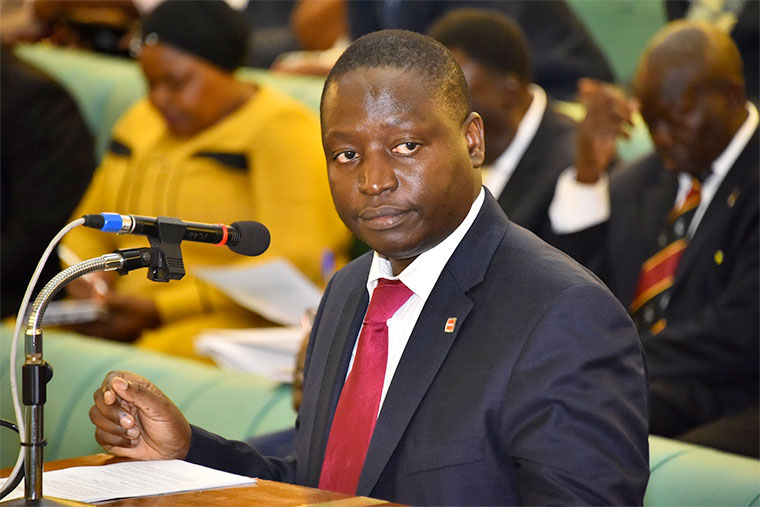advertisement
Uganda’s social media users to pay daily taxes
Uganda’s State Minister for planning David Bahati has said social media users will have to part with shs 100 daily,…

Uganda’s State Minister for planning David Bahati has said social media users will have to part with shs 100 daily, as tax on each sim card that uses internet for social media.
Minister Bahati echoed the statement while addressing journalists at Uganda media Centre in Kampala on Thursday.
Minister Bahati further said the tax measures are aimed at growing domestic budget financing. The government has also introduced a 1 per cent tax to be charged on each and every mobile money transaction made, for withdrawals and deposits.
advertisement
Bahati also pointed out that; the economy grew at 6 per cent this financial year as opposed to 5.5 per cent as earlier projected. “This is due to significant growth in agriculture, services and industry sectors”, he said.
The government has also introduced Shs100 tax on each litre of fuel for road maintenance, and income tax on 30 per cent of every Savings and Credit Cooperative Organization (Sacco’s) net profit.
This follows President Museveni’s recent revelation; that said Government plans to introduce taxes on social media platforms such as WhatsApp, Facebook, Twitter, Skype and Viber claiming that people use these platforms mainly for lugambo (gossip).
advertisement
The move has been received by mixed reactions from social media users, including human rights activists and opposition leaders, claiming the new tax proposals are “diversionary, deceptive, injurious to individual freedoms and burdensome”. In trying to widen the tax base in the 2018/19 budget, President Museveni proposed new taxes on telephones data transmission and the housing sector which he says generates rented incomes but are not adequately taxed.
Notably, according to research done and compiled by an Independent Dublin-based Web Analytic firm; Stat Counterfrom September 2016 to August 2017, they identified that 85.81 per cent of the people in Uganda are using these three devices; Desktop PCs, Mobiles, and Tablets to access Facebook, while you might have thought Twitter takes the second position, apparently the second position was to Visual discovery, collection, and storage tool; Pinterest – a platform that allows users to save images and categorize them on different boards. The platform carried a percentage of 6.19, while Twitter had 5.43 per cent, YouTube – 0.99 per cent Google+ – 0.44 per cent, and LinkedIn – 0.31 per cent.